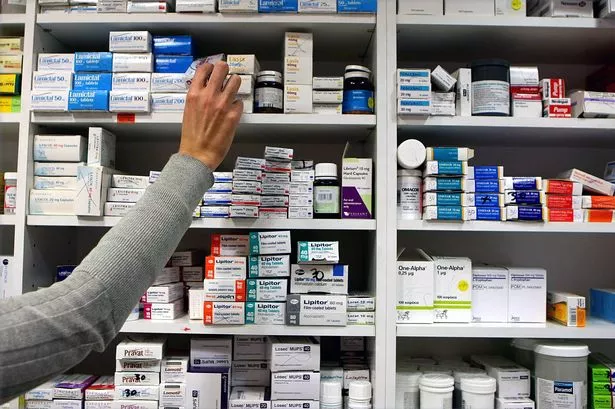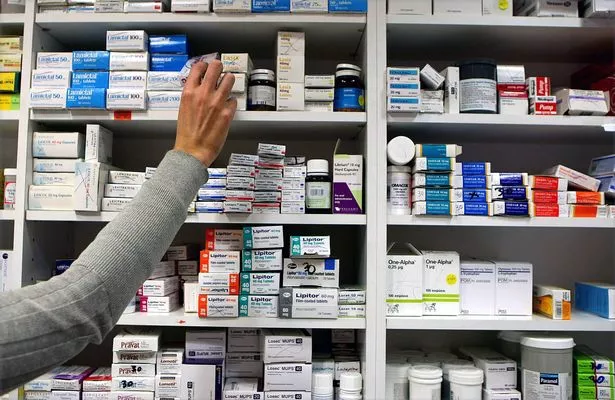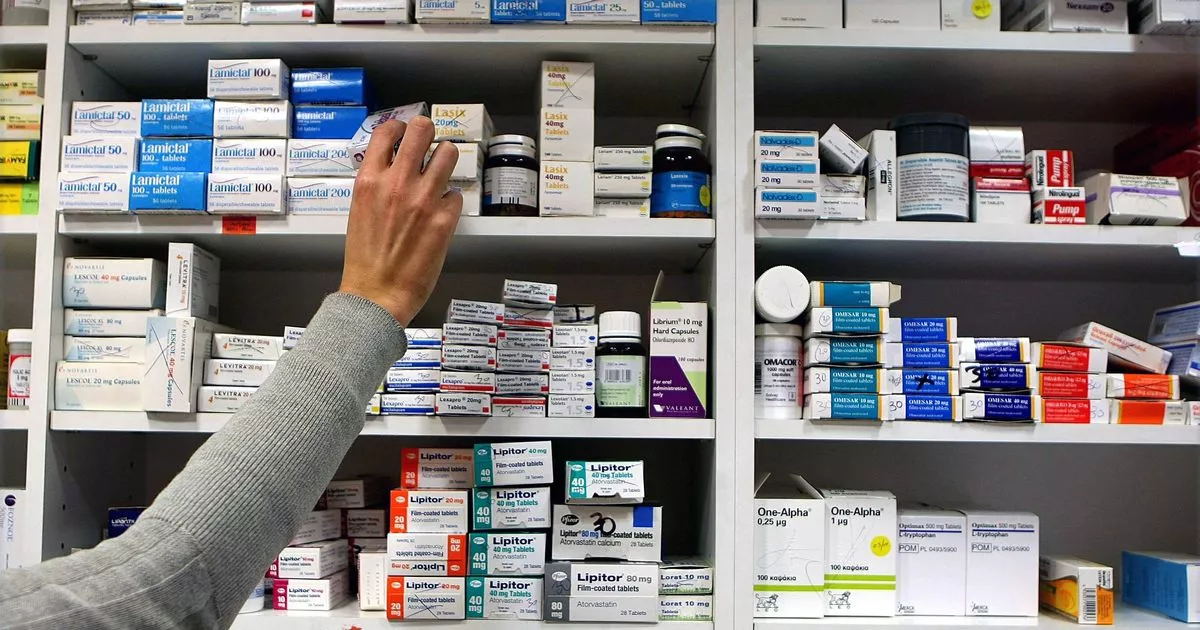The situation has been described as ‘worsening’
08:17, 30 Jun 2025Updated 08:17, 30 Jun 2025
 (Image: PA Wire/PA Images)
(Image: PA Wire/PA Images)
Pharmacists have issued a troubling warning that medicine shortages are becoming the “distressing new normal” for patient health. Community Pharmacy England, representing upwards of 10,000 community pharmacies, reported “unprecedented” patient challenges due to drug scarcities.
Their recent survey of over 4,300 pharmacy owners in England and feedback from more than 1,600 pharmacy workers reveals a deterioration compared to three years prior. The report found several key findings.
Key findings included 95% of pharmacy workers observing ongoing shortages inconveniencing patients, with 73% reporting these issues as endangering patient health; agitation among patients which has led to aggression, experienced by 79% of pharmacy professionals faced with unavailable or delayed medicines and some 86% of pharmacy owners said shortages were leading patients to visit multiple pharmacies in search of medicines.
Other findings included looking for medicines is time-consuming for staff, with 39% of pharmacy staff now spending one to two hours every day trying to get hold of drugs, with more than a quarter (26%) spending longer than two hours and almost half (49%) of pharmacy owners said patient services are being negatively affected by pressures on their business, and 94% link this directly to medicine supply problems.
Community Pharmacy England reported in the past year, the government rolled out serious shortage protocols (SSPs) for crucial medicines addressing conditions such as schizophrenia, bipolar disorder, angina, HRT, and antibiotics like cefalexin and clarithromycin.
These shortages also cover medications for ADHD, diabetes, and epilepsy as well. SSPs are implemented to recommend different drugs or quantities when certain medications are unavailable.
Janet Morrison, chief executive of Community Pharmacy England, expressed her concern: “Our survey shows that as medicine supply issues remain a daily reality across the country, the risk to patient health has become a distressing new normal.
“Delays in receiving medicines not only disrupt patients’ treatment but can also cause unnecessary stress and potential harm to their health. The ongoing time and effort required to manage shortages also adds pressure on pharmacy teams, who are already working at full stretch.
“Our survey results suggest a system stuck that is stuck at breaking point.” She attributed the shortages to factors including product discontinuations and global supply chain issues. We also believe that consistently low medicine prices in the UK have made the market less appealing to manufacturers, further weakening the resilience of the supply system.
 73% of pharmacy teams surveyed in 2025 said patients were being negatively affected by supply delays(Image: PA Wire/PA Images)
73% of pharmacy teams surveyed in 2025 said patients were being negatively affected by supply delays(Image: PA Wire/PA Images)
“The future is uncertain, with expected drug price inflation and potential knock-on effects across the NHS, but we welcome the Government’s commitment to ongoing work to shore up supply chain resilience and will be monitoring the situation.”
Compared to 2022, the survey in 2025 revealed a more troubling scenario, with 51% of pharmacy teams in 2022 reporting that patients were adversely impacted by supply delays, which escalated to 73% in 2025. Supply issues have become more frequent, and teams are dedicating more time to resolve them.
Fin McCaul, who runs a community pharmacy in Greater Manchester, said: “It’s not just a matter of running out of stock: patients are rightly frustrated, and their health is being harmed. Our teams are caught in the middle, spending hours calling suppliers and contacting GPs, trying to find alternatives, while also trying to keep patients informed.
“The constant uncertainty is affecting both our staff and patients, and each year it only seems to get worse.”
Louise Ansari, chief executive of Healthwatch England, said: “These findings are worrying and reflect what patients tell us about the distress and frustration that medicine shortages cause. Providing clear guidance to the public on what steps to take if their medication is unavailable is crucial.
“The government should also consider other actions, such as giving pharmacists greater flexibility to substitute medication, provided it is safe to do so, and the patient agrees.”
A Healthwatch England survey of over 7,000 adults has revealed that one in four are still experiencing medicine shortages, with additional concerns like prescription delays, pharmacy closures, and rising costs becoming more prevalent.
The survey found that 18% encountered prescription errors, 5% were concerned about the cost, and 9% faced unexpected pharmacy closures. It also highlighted a lack of awareness among the public regarding the ailments pharmacists can treat, potentially reducing unnecessary GP visits.
Responding to the findings, a Department of Health and Social Care spokesperson said: “This government inherited ongoing global supply problems, but we have robust measures in place to mitigate disruption for patients.
“We are working to build the resilience of medicine supply chains and prevent future disruption as we get the NHS back on its feet. We have recently agreed an extra £617 million of funding over two years with Community Pharmacy England to help community pharmacies, support the sector and provide patients with greater services closer to home.
“Deliberate violence or abuse directed at healthcare staff is unacceptable and all staff, including pharmacists and their teams, deserve to work in a safe and secure environment.”
